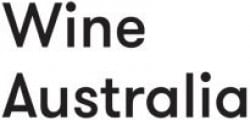Non-volatile compounds such as anthocyanins, tannins, polysaccharides, proteins, amino acides and organic acids are present in wine at high concentrations relative to other components. Adequate extraction and retention of non-volatile compounds are critical to wine quality (colour, texture). However, due to both their larger size and tendency to interact, non-volatile compounds cause problems in wine processing, like haze formation, precipitation, crystallisation and adsorption.
This project aims to tackle these challenges through three focus areas:
- Determining the processing levers which significantly shift the profile of non-volatile molecules in wine. An aim will be to characterise the mechanism by which ionised red wine pigments limit KHT crystallisation, to better control pigment composition, and hence red wine cold stability as pigment profiles become modified during wine procesing and ageing. This work aims to support producers in warm regions where red wines typically exhibit low colour and high pH.
- Deploying state-of-the-art techniques to characterise wine colloids to define, and thereby strategically manage non-volatile interactions at critical points in the winemaking process. Examples of this would include controlling collodial instabilities such as pigment, protein or KHT precipitation, or adsorption to surfaces (e.g.membrane fouling).
- Characterising and modifying surfaces/adsorbents able to modulate wine non-volatile composition in a targeted way (e.g. protein or tannin removal), aiming to develop improved processing tools, such as alternative fining agents, antifouling surfaces or packaging. The fundamental knowledge generated will form the basis to design and implement improved techniques or processes to manage non-volatile compounds in winemaking.


-crop-850x675.png)